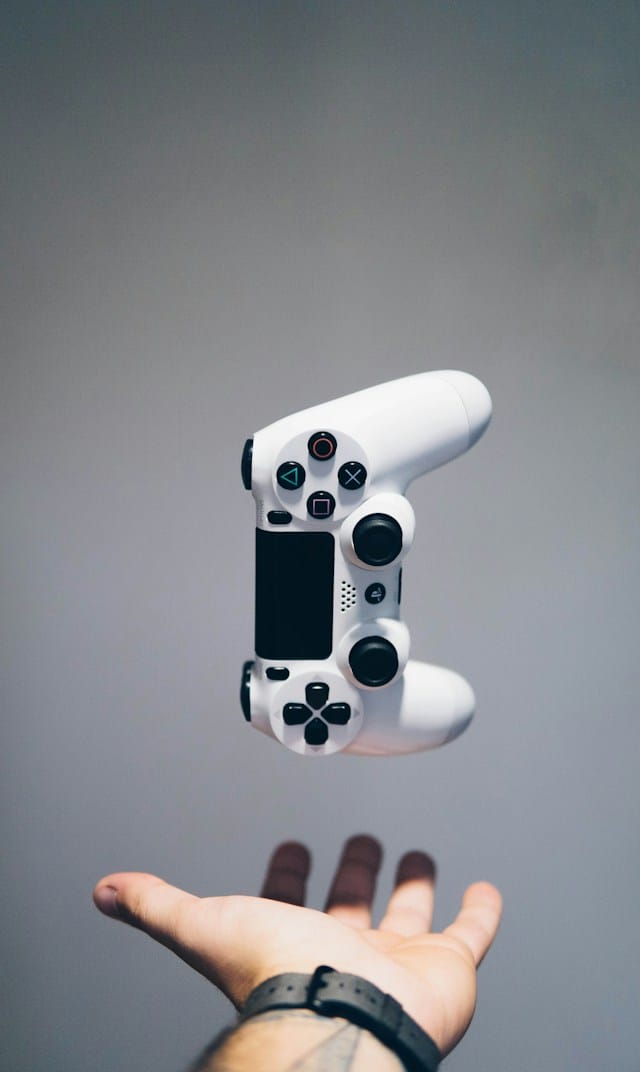In the fascinating realm of technology, change is the only constant. As you game enthusiasts would know, the gaming industry has been riding the crest of these technological advancements, delivering remarkable user experiences. Let’s take a deep dive into how the future is being shaped, specifically focusing on gaming interfaces and controllers.
Gesture and Hand Control in Gaming Interfaces
As the future unfurls, you will not just be playing games, but will be living them. Gesture and hand control technology is one such promising innovation which is revolutionizing gaming interfaces. No need for physical controllers to navigate your game, just wave your hand or make a gesture to control your avatar.
En parallèle : How to Stay Safe and Informed About Cybersecurity Threats in the Digital Age?
From simple devices that track hand movements to sophisticated systems that decipher the intricate intricacies of a hand’s gesture, the gaming industry is poised to transform. Imagine playing a virtual reality game where you can control your character’s actions by simply moving your hand or mimicking a gesture. This kind of interactive and intuitive interface brings the user closer to the game, making the entire experience more immersive and enjoyable.
Gesture and hand control technology is not limited to just games. Developers are incorporating this technology into applications for education, medicine, and virtual reality simulations. The possibilities are endless. Allowing the user’s hands to manipulate virtual objects opens up a whole new world of interaction.
En parallèle : What Are the Most Exciting Technological Innovations Transforming Our World?
The Brain-Computer Interface in Gaming
Another interesting development in the field of gaming technology is the brain-computer interface (BCI). It’s a system that allows direct communication between the human brain and an external device, in this case, the gaming system. It’s like having a telepathic relationship with your game.
Imagine being able to control your game avatar simply by thinking about the actions. That’s exactly what a brain-computer interface does. It reads your brain signals, interprets your intended actions, and translates them into commands for the gaming system.
This brain-gaming interface would take game immersion to a whole new level. You wouldn’t just be playing a game; you’d be living it. By making gameplay more intuitive and immersive, the BCI could dramatically enhance the user experience.
The Role of Virtual Reality in Gaming
Virtual reality (VR) is another game-changer. It offers an immersive gaming experience where players find themselves in an alternate universe. Virtual reality technology is expanding at a rapid pace, paving the way for new and exciting gaming interfaces.
VR headsets, coupled with hand controllers, transport the players into a completely different world. The game unfolds as a 360-degree 3D environment that players can explore and interact with. This completely transforms the gamer’s experience, making it more real and engaging.
With advancements in VR technology, the future will likely see more seamless and realistic gaming interfaces. Imagine being able to feel the virtual environment’s texture, temperature, and even smells. This multi-sensory immersion would truly revolutionize gaming.
The Design Aspect of Future Gaming Interfaces
For an immersive game experience, design plays a crucial role. You might have state-of-the-art technology, but if it’s not designed in a user-friendly and intuitive way, players might not enjoy the game as much.
The future of game design will focus more on the user. Designers will work towards creating interfaces that not only look good but also feel good to use. They will focus on making games more immersive and interactive, making sure that the players feel like they are a part of the game world.
In the future, we can expect to see gaming interfaces that are customizable according to the user’s preferences. This would make gaming more personal and enjoyable.
The Future of Gaming Controllers
While there’s a lot of buzz about brain-computer interfaces and gesture-based controls, traditional gaming controllers aren’t going anywhere. They will continue to be refined and advanced to provide a better user experience.
Future gaming controllers might include features like haptic feedback, which would allow players to feel tactile sensations as they play the game. For example, if you’re playing a racing game, you could feel the vibration of the car engine through the controller.
Moreover, we might even see controllers equipped with sensors that can track the player’s movements and translate them into the game. This would make gameplay more intuitive and immersive.
Indeed, the future of high-tech gaming interfaces and controllers is exciting. With technology advancing at a breakneck speed, it’s only a matter of time before we see these innovations become a reality. Until then, let’s keep our fingers crossed and our game spirits high. But always remember, irrespective of how technology shapes up, the ultimate aim is to enhance the user’s gaming experience.
The Importance of Accessibility in Gaming Technology
The future of high-tech gaming interfaces and controllers is not only about innovating more immersive experiences, but also making these experiences accessible to everyone. Accessibility in gaming technology is vital; it ensures that games can be enjoyed by players of all abilities.
Inclusivity in gaming goes beyond just providing subtitle options for the deaf and hard of hearing. For instance, Microsoft’s Xbox Adaptive Controller is a pioneering example. Launched in 2018, this controller is designed for people with limited mobility, allowing them to customize their setup. Its design considers the different ways players can interact with the controller, which could be through touch, movement, or even breath.
With the advancements in AI and machine learning, future gaming interfaces could potentially adapt themselves to the needs of each player. For example, they could adjust the game’s difficulty based on the player’s cognitive capabilities or change the control scheme to match the player’s physical abilities.
Additionally, VR technology could also provide new opportunities for inclusive gaming. For example, developers could design VR games that allow players to explore the game world using different modes of movement, such as flying, swimming, or teleporting. This could provide a more accommodating gaming experience for players with physical disabilities.
Gaming Interfaces and Controllers: A Conclusion
In the grand narrative of technology, high-tech gaming interfaces and controllers are steadily charting their course towards a future where gaming transcends beyond the traditional joystick and button controllers. The future hints at an era of gesture control, brain-computer interfacing, and VR technology, each of which would allow gamers to engage with their virtual environments in ways that were previously unimaginable.
However, in this future tech-scape, there is a crucial need to ensure that everyone can enjoy the gaming experience, regardless of their physical or cognitive abilities. Hence, the industry must also focus on accessibility. As gaming becomes more ubiquitous and mainstream, it’s crucial to remember that games should be for everyone.
From designing games that are more intuitive and immersive, to creating customizable and accessible gaming interfaces, the ultimate goal remains the same – to enhance the user’s gaming experience. As we stand on the brink of this exciting future, we can only speculate about the real potential of these technologies and the manner they will redefine gaming. But one thing’s for sure – it’s going to be a thrilling ride.











